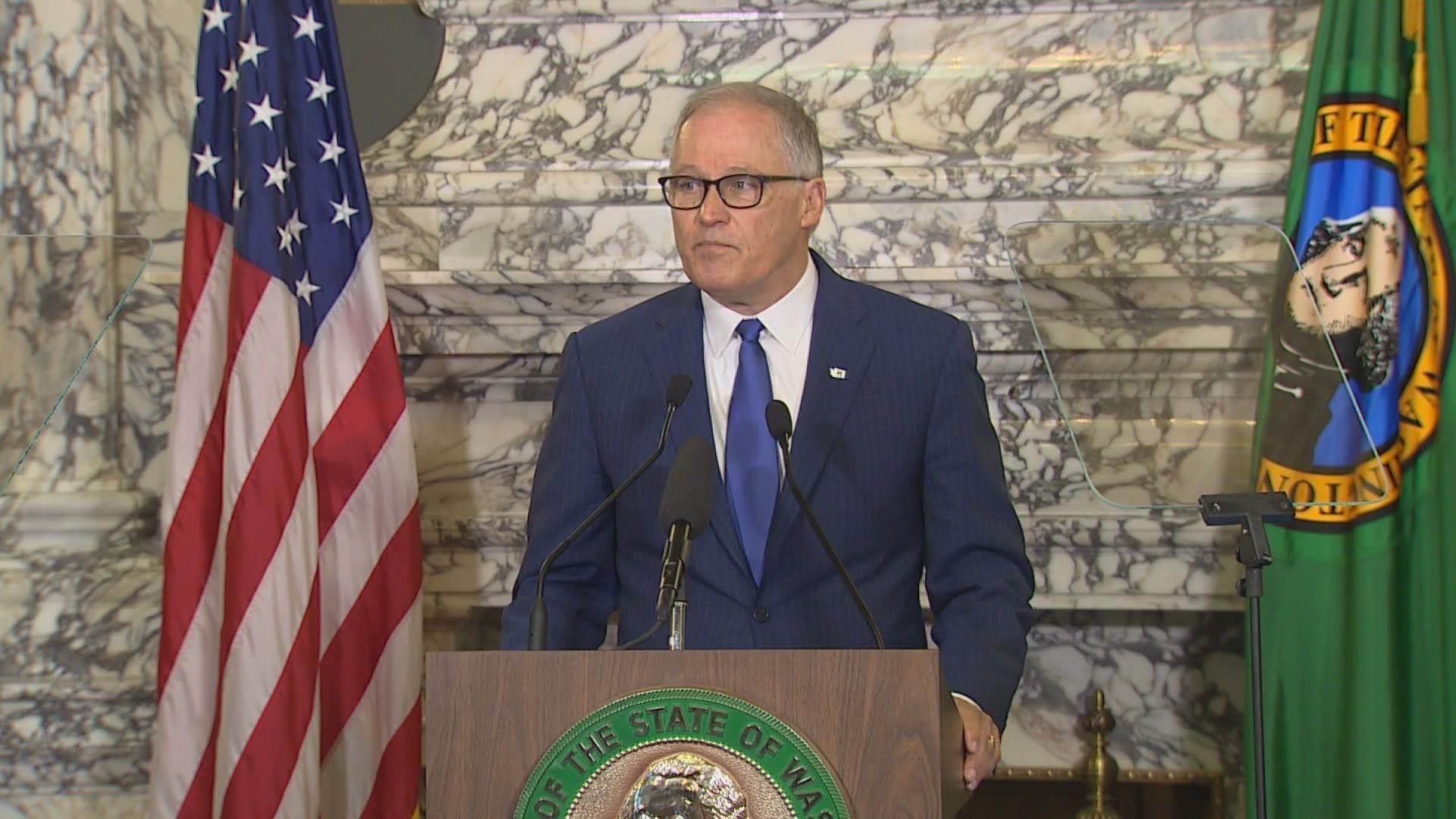Editor's note: The above video on Gov. Jay Inslee's priorities for the 2022 legislative session originally aired January 11, 2022.
OLYMPIA, Wash. – The Transportation Committee for the Washington State House of Representatives is hearing a bill Thursday that would make the long-discussed pay-per-mile tax a reality in the state.
A pilot program was first introduced to the state back in 2017 when the state’s transportation commission shared details about testing the newly formatted tax.
If passed, House Bill 2026 would mandate the Department of Licensing to establish an early adoption program that would require the registered owner of an enrolled electric vehicle to pay a fee of 2.5 cents per mile upon registration of the vehicle beginning July 1, 2025.
Participation would be mandatory for new electric vehicles and voluntary for older electric vehicles.
The program would allow certain hybrid vehicles to voluntarily participate in the program beginning on July 1 the next year.
Most other vehicles would then be allowed to voluntarily participate in the program exactly one year later.
The proceeds from the tax would go to the Road Usage Charge Account, which solely funds transportation projects. The bill would also require the Joint Transportation Committee to evaluate the program to figure out what it would take to fully implement it and provide a report to the state transportation committees by Jan. 1, 2029.
When the pilot program started in 2018, roughly 2,000 drivers participated and helped evaluate various mileage reporting methods and gave feedback.
Participants could report their miles either through a mileage permit that allowed drivers to pay based on a pre-selected block number of miles every three months, an odometer reading reported quarterly, plug-in devices with or without GPS and the Milemapper smartphone app for iPhone users.
In January 2020, the Transportation Commission gave a final report and recommended that the state implement a system that applies to a small number of vehicles as a way to begin transitioning away from the gas tax.
The commission was awarded $5.5 million in federal grant dollars to conduct additional research and testing, which is expected to be finished in 2023.

